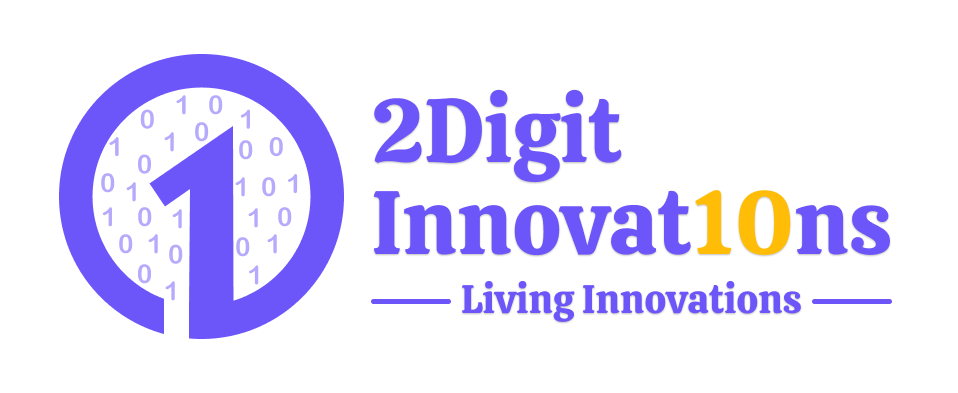
5 Programming Languages for Creating the Best Mobile App
19 Apr 24
5 Programming Languages for Creating the Best Mobile App
In the fast-paced world of mobile app development, choosing the right programming language is crucial for creating a successful and high-quality app. With a plethora of options available, it can be challenging to determine which programming languages are best suited for mobile app development. In this article, we'll explore five programming languages that stand out for their ability to create the best mobile apps. Table of Contents | Sr | Headings | 1. | Introduction | 2. | Java | 3. | Swift | 4. | Kotlin | 5. | JavaScript | 6. | Dart | 7. | Conclusion | 8. | FAQs Introduction Mobile app development is a dynamic and innovative field, with new technologies and programming languages rapidly emerging. When it comes to creating the best mobile apps, selecting the right programming language is paramount. Factors such as performance, ease of development, and platform compatibility all play a crucial role in determining which language to use. In this article, we'll explore five programming languages that excel in mobile app development, catering to the diverse needs of developers and users alike. 1. Java Java has long been a staple in the world of mobile app development, thanks to its robust performance, platform independence, and extensive ecosystem of libraries and tools. With its Write Once, Run Anywhere (WORA) philosophy, Java allows developers to build cross-platform mobile apps that run seamlessly on Android devices. Its object-oriented nature and strong typing system make it ideal for building complex and scalable applications. Key Points: - Platform independence - Extensive ecosystem - Object-oriented programming 2. Swift Swift is the modern, fast, and powerful programming language developed by Apple for building iOS, macOS, watchOS, and tvOS apps. Known for its simplicity, safety, and performance, Swift has quickly become the preferred choice for iOS app development. With its concise syntax and powerful features such as optionals and generics, Swift enables developers to write clean, expressive, and bug-free code. Key Points: - Developed by Apple - Clean syntax - Safety features 3. Kotlin Kotlin is a statically typed programming language developed by JetBrains, initially targeting the Java Virtual Machine (JVM) but now also compiling to JavaScript or native code. Kotlin offers seamless interoperability with Java, making it an excellent choice for Android app development. With its concise syntax, null safety, and functional programming features, Kotlin allows developers to write code that is both concise and expressive. Key Points: - Interoperability with Java - Concise syntax - Null safety 4. JavaScript JavaScript has long been synonymous with web development, but its versatility extends to mobile app development as well. With frameworks like React Native and NativeScript, developers can leverage their existing JavaScript skills to build cross-platform mobile apps. JavaScript's asynchronous nature and event-driven architecture make it well-suited for creating responsive and interactive mobile applications. Key Points: - Cross-platform development - React Native and NativeScript - Asynchronous programming 5. Dart Dart is a client-optimized programming language for building fast, portable, and scalable apps across a variety of platforms. Developed by Google, Dart is the language of choice for building mobile apps with Flutter, Google's UI toolkit for building natively compiled applications for mobile, web, and desktop from a single codebase. Dart's simplicity, performance, and hot reload feature make it a compelling option for mobile app development. Key Points: - Developed by Google - Flutter framework - Hot reload feature Conclusion In conclusion, the choice of programming language plays a significant role in the success of a mobile app. Each of the programming languages mentioned above offers unique strengths and advantages for mobile app development, catering to different platforms, development environments, and project requirements. Whether you're building for Android or iOS, Java, Swift, Kotlin, JavaScript, or Dart, there's a programming language suited to your needs. By carefully evaluating the features and capabilities of each language, developers can create the best mobile apps that deliver exceptional user experiences and meet the demands of today's mobile users. FAQs Which programming language is best for Android app development? Java and Kotlin are both popular choices for Android app development. While Java has been the traditional language for Android development, Kotlin offers modern features and seamless interoperability with Java, making it an excellent alternative. Is Swift only used for iOS app development? Yes, Swift is primarily used for iOS, macOS, watchOS, and tvOS app development. It is the preferred programming language for building native iOS apps and is fully supported by Apple's development tools and frameworks. Can JavaScript be used for building native mobile apps? Yes, with frameworks like React Native and NativeScript, developers can use JavaScript to build native mobile apps for iOS and Android platforms. These frameworks allow developers to write code once and then deploy it across various platforms. What is the advantage of using Dart for mobile app development? Dart offers several advantages for mobile app development, including simplicity, performance, and the hot reload feature provided by the Flutter framework. Dart's ability to compile to native code and its support for reactive programming make it a compelling choice for building fast and scalable mobile apps. Can I use multiple programming languages in the same mobile app project? While it's technically possible to use multiple programming languages in the same mobile app project, it's generally not recommended due to potential compatibility issues and increased complexity. It's best to choose one primary programming language that best fits your project requirements and stick with it throughout the development process.


CALL
Ready to Work Together In New Projects ?
Services
App Development
Web App Development
Digital Marketing
UI And UX Designing
Custom Mobile And Web Development
Free Tools
Quick Links
Our Apps
Find us on Clutch
Privacy & Policy
Shipping & Delivery Policy
Return & Refund Policy
Terms & Condition
FAQs
Legal
Contact
Hyde Park Crown First Floor, FF-14-21 Plot No GH-03 Sector-78, Noida, Uttar Pradesh 201306
info@2digitinnovations.com
+91 7814042409
